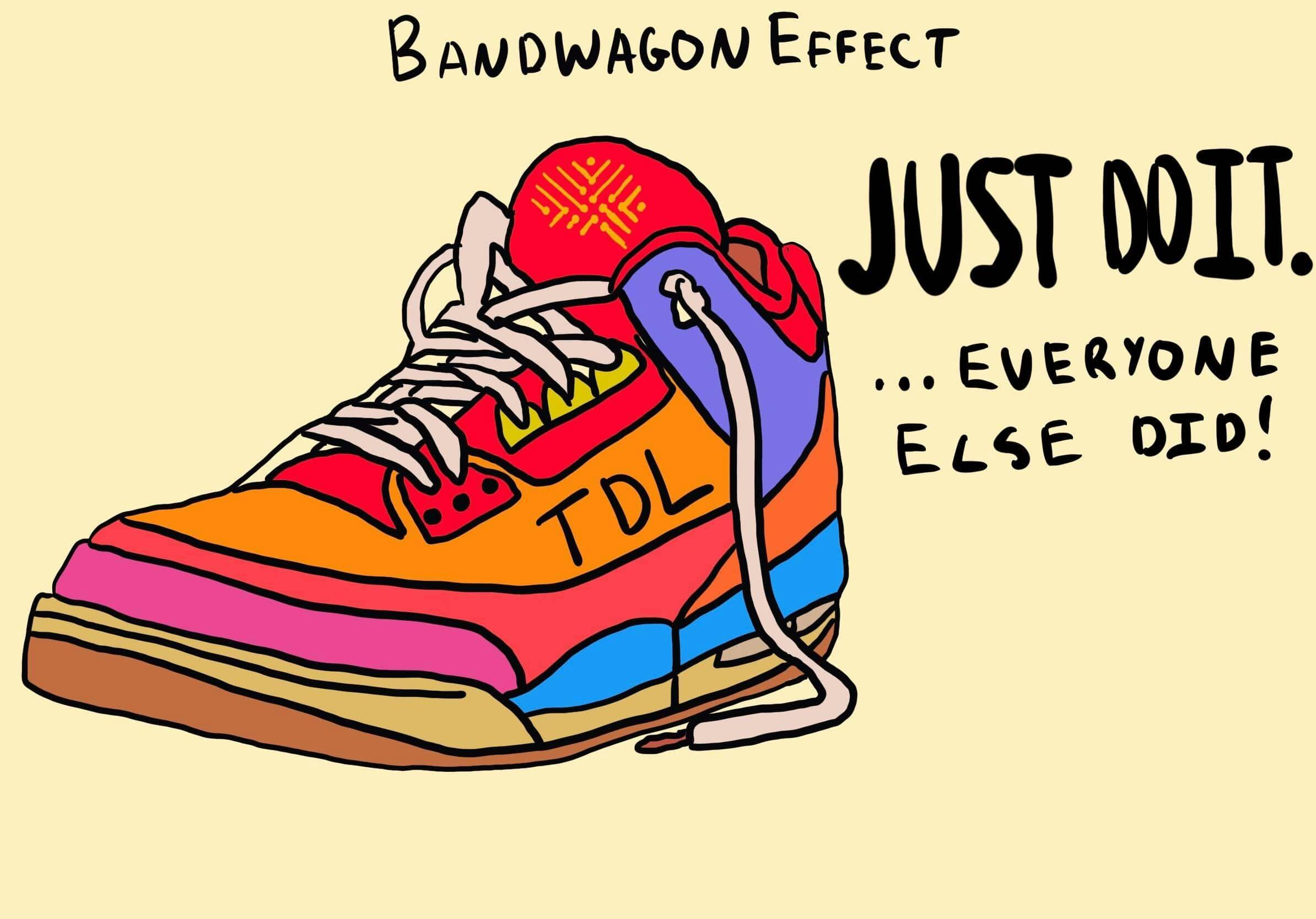Why do we support opinions as they become more popular?
Bandwagon Effect
, explained.What is the Bandwagon Effect?
The bandwagon effect refers to our habit of adopting certain behaviors or beliefs because many other people do the same. This psychological phenomenon explains why popular ideas, products, or social movements often gain rapid momentum—people tend to "jump on the bandwagon" to fit in, avoid missing out, or feel part of a group.

Where the bias occurs
Consider the following hypothetical: John is an avid fan of his local basketball team called “the Sharks.” His favorite team has always played well, and he loves attending their games with his friends every weekend.
One day, the league officials announced the formation of a new basketball team in the neighboring town named the “Fighters.” This underdog team soon rises to the top of the leaderboard, winning nearly all of their games that season. Their popularity skyrockets. Soon, people from John’s town are wearing Fighters’ jerseys and cheering them on at local bars. “Fighter mania,” as it’s soon dubbed, spreads all across the region.
Meanwhile, the Sharks are not doing so well. John’s friends, who were also fans, slowly start switching allegiances to the more dominant and popular Fighters. Suddenly, John decides that he too supports the Fighters. After all, they have a shot at winning this year’s championship.
The next day, John cheers on the Fighters at his local bar—indistinguishable from the mass of other fans that form Fighter mania.
The snowballing popularity of the Fighters, and John’s subsequent decision to support them, is an example of the bandwagon effect. Yes, the Fighters are a good team, but the reason John began supporting them is because so many around him had already switched allegiances.
















